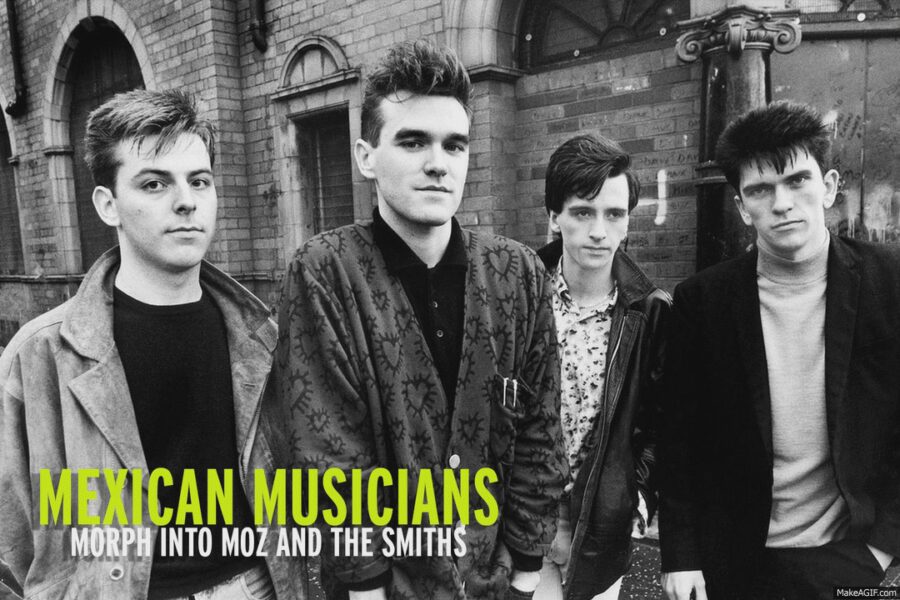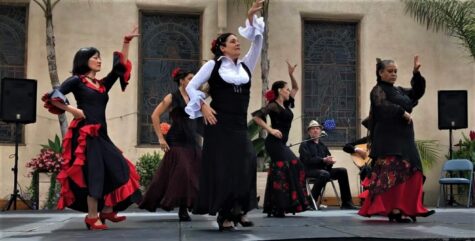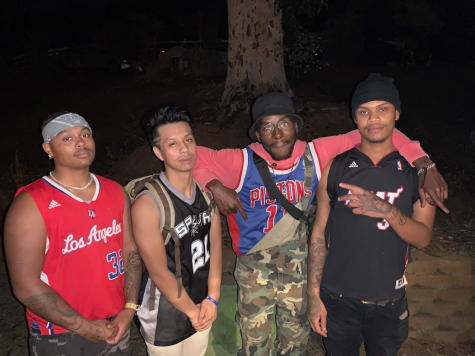Mexican Musicians Morph into Moz and the Smiths
Listen to Morrissey’s greatest hits in the language of his greatest fans
Morrissey, and Latinos go together like limón y sál — lime and salt. It’s no secret. For years, many questioned how a Brit could come to mean so to much to a culture that would, at first glance, appear so far removed from the passionate lyricist.
Yet the fact remains, Morrissey has a strong, committed Latino following that loves him and that he is fond of in return. During a show, Morrissey once uttered to a crowd, “I wish I was born Mexican…but it’s too late for that now.” In 1999, Morrissey released a compilation DVD entitled “Oye, Esteban,” as an ode to the culture of his greatest fans. Now, as though to complete this cycle, Mexrrissey, a cover band made up of some of the Latin community’s finest musicians, has devoted an entire 12 track album covering Morrissey’s most beloved songs. However, there is a twist: this time the Latin-loved Brit’s words have been set to recognizable Latin rhythms and sung entirely in Spanish.
With the evident, strong Latino following Morrissey has cultivated in Los Angeles over the years, Mexrrissey’s “No Manchester” could be music to L.A. Moz fan’s ears.
Released March 4, “No Manchester” is Mexrrissey’s first album, a super group which includes Ceci Bastida from Tijuana No, Alejandro Flores from Cafe Tacuba, Jay de la Cueva from Moderatto, Chetes from Zurdok, and Camilo Lara from Mexican Institute of Sound as the album’s producer.
“I wish I was born Mexican … but it’s too late for that now.”
Every song Mexrrissey performs on the album is filled with melodrama and the melancholy longing that Morrissey so famously uses as his vocal signature both in The Smiths and in his solo career. Imagine Morrissey backed up by cumbia, mariachi horns, and in Spanish tongue. It’s almost as though Mexrrissey has brought to life what it would have been like if Morrissey had been able to change his inherited culture and birthplace. If Morrissey had been born Mexican, this is what his music might sound like. For familiarity, think “Mikel Erentxun’s Esta Luz Nunca Se Apagará” 24 years later and with a huge inyección of Latin rythms.
“International Playgirl,” a play on Morrissey’s “The Last of the Famous International Playboys” is a punky cha-cha track whuch concludes with plenty of Latin horns and timbales. “No soy mala por naturaleza” replaces the main character with a feminine, devilish figure as opposed to Moz’s original, haunting male criminal voice, singing, “I never wanted to kill, I am not naturally evil. Such things I do just to make myself more attractive to you, have I failed?” Mexrrissey’s female lead is seeking just as much approval: “Solo quiero que les guste la playgirl, international playgirl” translates to “I just want you to like the playgirl.”
“¿Y si no nos creen aun, nos creerán alguna vez?” a lyric translated from “And if they don’t believe me now, will they ever believe me?” is heard on “El Chico Con La Espina Clavada,” an early released track excluded from the album; it is directly translated from “The Boy With The Thorn in His Side,” from The Smiths’ 1986 album The Queen is Dead. On “No Manchester,” “El Chico” transports you to a dimly-lit dance floor, full of sweaty, grooving bodies, a scene as familiar as any Latino house party. Complete with verbal improv at the finalization of the song, “El Chico” is set to a vibrant cumbia, complete with rhythmic accordion, bringing about the perfect scene to darle una vuelta a tu pareja, or to spin your partner.
One of the final pre-released tracks, Mexrrissey’s version of “Suedehead,” “Estuvo Bien,” intros with a soft, wanting calling of “¿Por que no vienes?” — Why don’t you come here? — instead of Morrissey’s rejecting, “Why do you come here and why do you hang around?” Among the smooth mariachi-esque trumpets, “¿Porque mandas cartas de amor?” — Why do you send me love letters? — is a change from Morrissey’s seemingly belittling “Why send me silly notes?” This line demonstrates the romantic, passionate themes that countless Latin musicians play with, which is another theory for the Morrissey-Latino connection; one that producer Calimo Lara supports.
In an article published by L.A. Weekly, Lara said, “We share melodramatic, we share the drama, we share black humor, so it was a matter of putting/changing these small details of our everyday life that Morrissey talks about in his lyrics and looking for tiny Mexican details that can apply to that.”
With Morrissey and The Smiths having such a strong Latino following, Mexrrissey’s “No Manchester” comes as a refreshing, delightfully danceable album that is familiar to the Spanish-speaking crowd, allowing them to recall Moz and The Smiths’ beautifully tragic tracks set to Latin-rooted rhythms. One could go as far to say that it is a Spanish love-novel and gracias to the Brits that set a musical backdrop to generations of Latinos. ¡Los queremos, Mexrrissey, los queremos!









